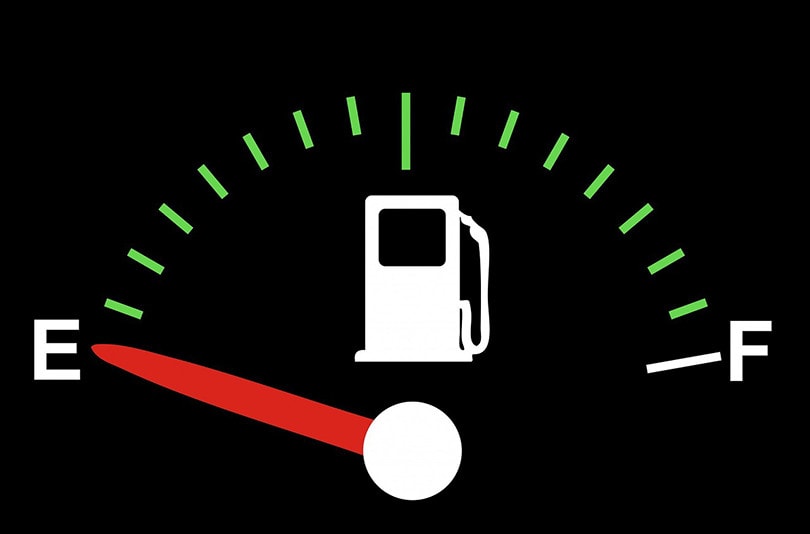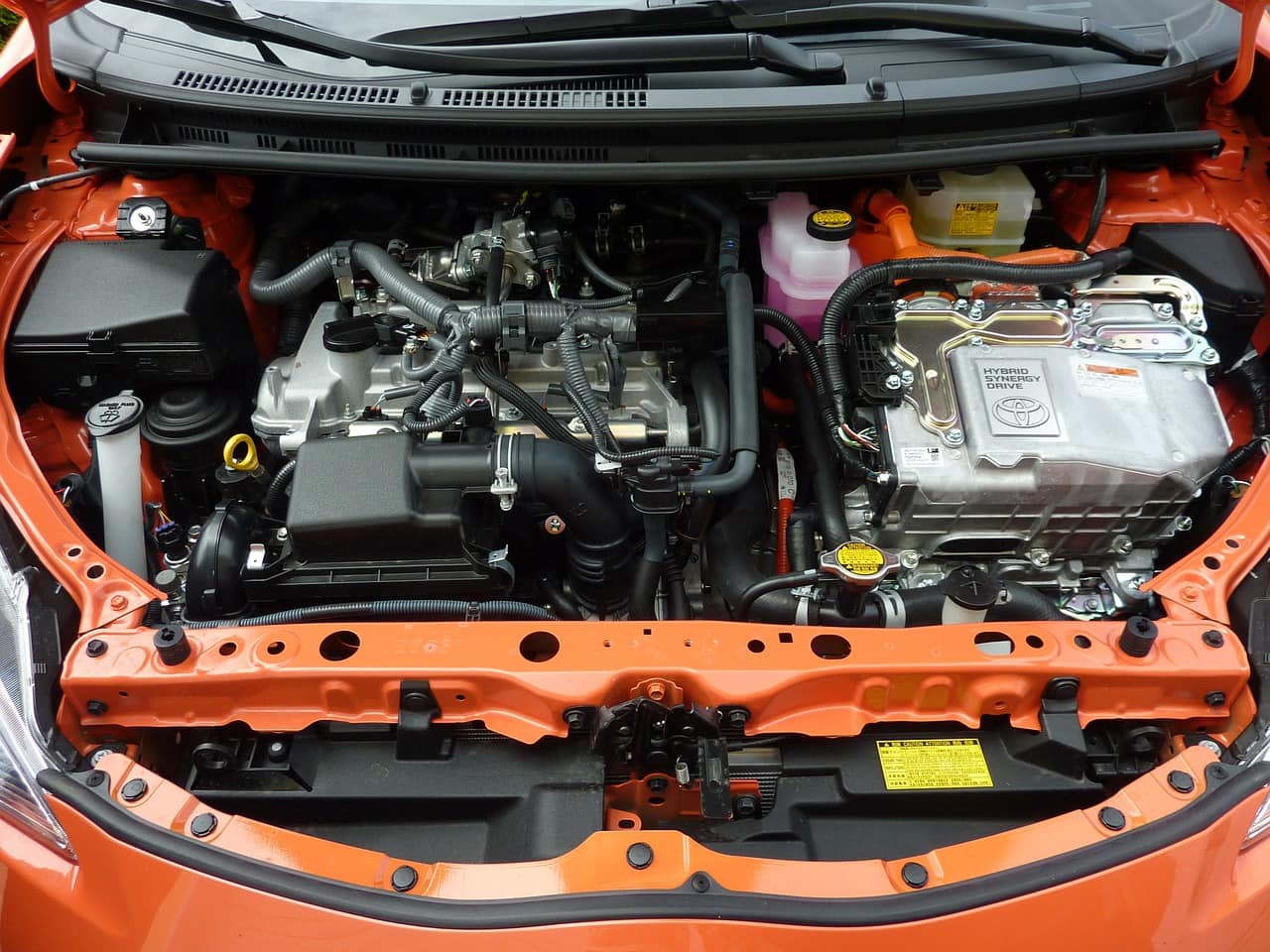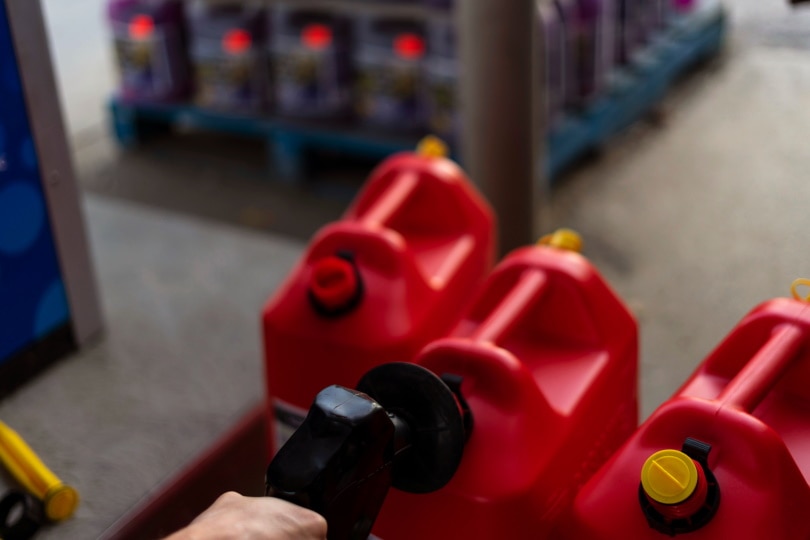Can You Mix Regular & Premium Gas? What You Need to Know!
-
Pete Ortiz
- Last updated:

While most cars use regular gasoline, a special few call for premium gas. Most people aren’t really clear on the difference, and fuel shortages sometimes leave us no choice but to mix regular and premium. Is that okay? As it turns out, yes! Mixing regular and premium creates a mid-octane fuel like the gas stations sell as either 89 or 91 octane.
First, we need to establish exactly what the difference is between ‘regular’ and ‘premium’ gas: their octane rating. Standard gasoline labeled as 87 is lower octane than gas labeled 91 or 93, which is premium.
The only practical difference is that higher octane gas can withstand higher compression in the engine, meaning it won’t detonate before it’s supposed to.
Regular cars use regular gasoline, while cars that need a high compression ratio or some few with turbochargers need premium gas. Premium gas allows them to enjoy optimal engine performance and efficiency. The premium gas is simply better for different types of engines and offers no additional benefit to regular engines.
 Does Better Gas Clean Your Engine?
Does Better Gas Clean Your Engine?
A common misconception is that premium gas somehow cleans your engine and makes it run for longer than regular gas. The truth is that the additives in your gas make more of a difference than the octane rating—more precisely, the detergents added by gas companies that help dislodge carbon deposits in the engine.
You’ve likely seen ads for things like Chevron Techron, which is Chevron’s proprietary additive blend. What might surprise you is that these additives are used in both regular and premium gas! For deeper cleaning, you’d have to have your car taken in to be serviced.

What Type of Gas Should I Use?
Check your car’s owner manual to confirm, but the majority of cars today call for regular octane gasoline. Some types of cars do require premium, so you should actually check and not assume based on what you’ve been filling up with.
Premium gas doesn’t give a regular car additional mileage, performance, efficiency, or any other benefit. Why pay more for gas that doesn’t even do anything for your car?
On the other hand, if your owner’s manual says to only use premium, never use regular gas. It probably won’t do any harm to your engine, but you won’t be getting optimal performance out of your car if you’re not using high octane gas.
In some rare cases, vehicles may ‘recommend’ using premium gas, in which case it’s optional. You may see some small boost in performance and mileage, so you’ll have to decide if the higher price is worth it.
What Happens If You Use the Wrong Gas?
If you put premium in a regular car, you won’t even notice a difference. There’s no increased mileage or performance boost from using premium gas, and you’re basically just wasting money.
But what happens if you put regular gas in a premium-only car? In the 90s, your car’s engine would start knocking, but today the engines have computers that can detect the octane difference.
By changing the engine timing, it can compensate for the lower-grade fuel. In the short term, you probably won’t notice a difference. This is fine when you’re running low and the only gas station lacks a premium option, but you don’t want to make it a habit. Using an octane booster can help remedy low octane gas right in your tank, but it’s not a permanent solution.
In the long term, it’s not good to always use the cheapest gas for a premium car. The most likely effects are decreased fuel mileage as well as decreased engine performance, but you could also be degrading the engine and see decreased longevity.
The most obvious symptom that there’s a problem is that the engine will start knocking and making other odd noises. If you notice symptoms like this after you’ve been putting regular gas in your premium car, take it to a qualified mechanic immediately and let them know. They’ll be able to determine how bad the damage is and how to fix it.

 Conclusion
Conclusion
Premium and regular gas may have different prices, but premium gas doesn’t offer any special benefits to regular cars. You should always check your owner’s manual to determine what octane gas your car takes.
- You might also like: How to Properly Store Gasoline – 8 Things You Need to Know!
Featured Image Credit: No-longer-here, Pixabay
Contents

 Does Better Gas Clean Your Engine?
Does Better Gas Clean Your Engine?